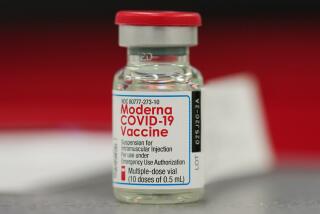Still No Magic Pills
- Share via
Agovernment-sponsored panel has recommended a radically more aggressive approach to reducing heart attack risks, emphasizing increased use of cholesterol-lowering drugs known as statins. About 13 million Americans currently take these drugs. If physicians followed the panel’s proposed guidelines and prescribed the medication for all those deemed at risk, that number could triple. Cholesterol reducers, already the largest category of drugs now sold, could become a $30-billion-a-year market. At the same time the death rate from heart disease, the nation’s leading killer, could be expected to begin a dramatic decline, along with some of the costs for treating heart disease.
The panel relied on a number of major studies showing that reducing cholesterol levels can prevent heart attacks and lower death rates. Its key proposal is to extend drug therapy to anyone considered in the danger zone because of such risk factors as a high level of “bad” (LDL) cholesterol, diabetes, elevated blood pressure or smoking. The guidelines for acceptable levels of LDL cholesterol and “good” (HDL) cholesterol have been made more rigorous, greatly expanding the pool of potential statin users.
High levels of LDL cholesterol are linked to an excess of saturated fats in the diet, mostly from animal sources. The panel urged those at risk for heart disease to follow the long-recommended formula of eating a healthier diet based largely on vegetables, fruits and whole grains, losing weight, exercising and controlling blood pressure. But while often prescribed, this regimen is also often ignored.
What doctors must drive home to patients is that while drug therapy has been shown to be effective in lowering heart attack risk, it is not a foolproof preventative. Dr. Scott Grundy, chairman of the committee that wrote the new cholesterol guidelines, estimates that drugs can reduce a person’s risk of heart disease by about one-third. Lifestyle changes remain essential to further lowering risk.
Cholesterol-lowering drugs can easily cost more than $1,000 a year, raising a barrier to their potential wider use. Next month the patent on one of the most commonly prescribed statins expires, making it likely that cheaper generic versions will soon be available. Grundy is among the heart disease researchers who describe the statins as “amazing.” They will be an even greater blessing once they become more affordable.






